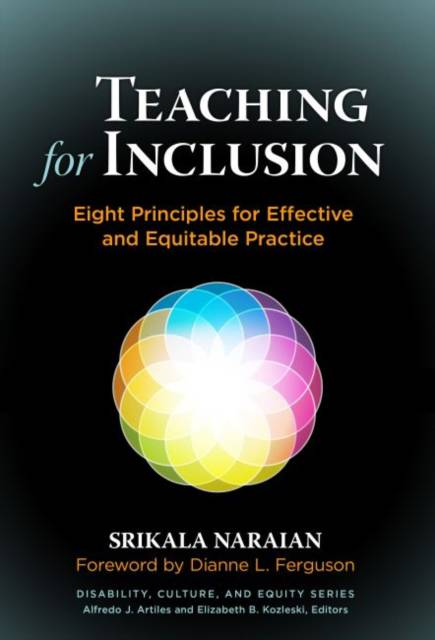
- Afhalen na 1 uur in een winkel met voorraad
- Gratis thuislevering in België
- Ruim aanbod met 7 miljoen producten
- Afhalen na 1 uur in een winkel met voorraad
- Gratis thuislevering in België
- Ruim aanbod met 7 miljoen producten
Omschrijving
Teaching for Inclusion shows how educators navigate the competing demands of everyday practice with examples from urban, suburban, elementary, and secondary schools. The author offers eight guiding principles that can be used to advance an inclusive pedagogy. These principles permit teachers to both acknowledge and draw from the conditions within which they work, even as they uphold their commitments to equitable schooling for students from historically marginalized groups, particularly students with disabilities. Situated in the everyday realities of classrooms that often include mandated testing requirements and accountability policies, this book addresses multiple dimensions of inclusive practice including curricular decisionmaking, the "grammar" of schooling, the status of family communities, and the demands of professional roles.
Book Features:
- Values teachers as contributors to the field of inclusive education, rather than technicians implementing given concepts.
- Offers ways of thinking about inclusive practices that educators can adapt to their own school contexts.
- Captures the real dilemmas faced by classroom teachers as they implement recommended practices.
- Incorporates a range of perspectives, including educators, students, and families.
Specificaties
Betrokkenen
- Auteur(s):
- Uitgeverij:
Inhoud
- Aantal bladzijden:
- 176
- Taal:
- Engels
- Reeks:
Eigenschappen
- Productcode (EAN):
- 9780807758571
- Verschijningsdatum:
- 28/04/2017
- Uitvoering:
- Paperback
- Formaat:
- Trade paperback (VS)
- Afmetingen:
- 152 mm x 226 mm
- Gewicht:
- 258 g

Alleen bij Standaard Boekhandel
Beoordelingen
We publiceren alleen reviews die voldoen aan de voorwaarden voor reviews. Bekijk onze voorwaarden voor reviews.












